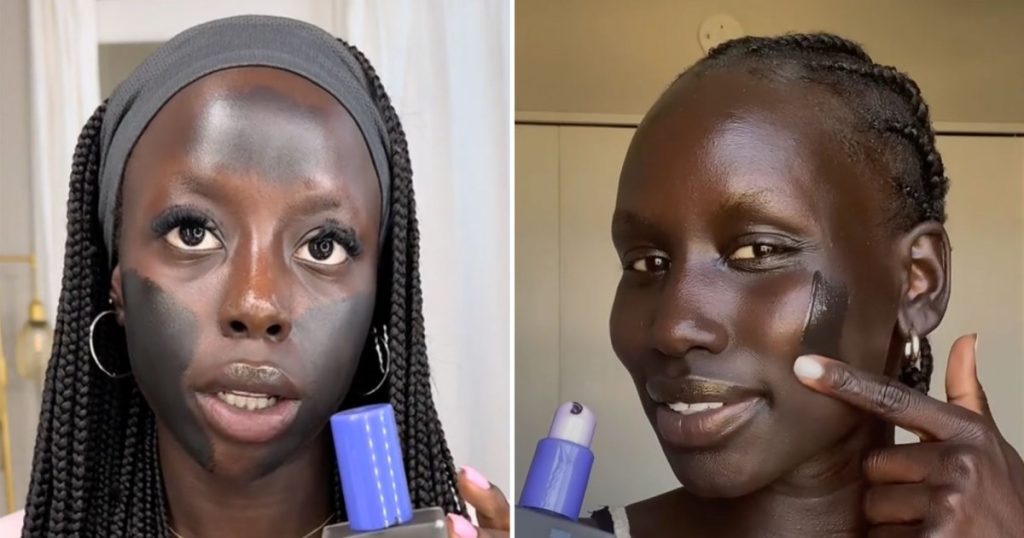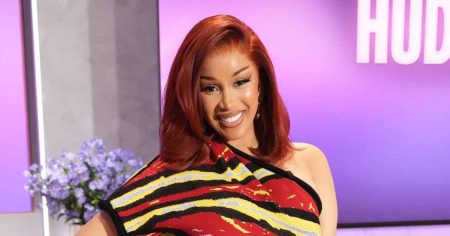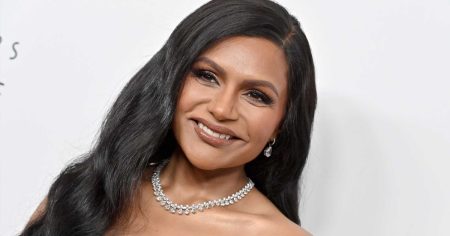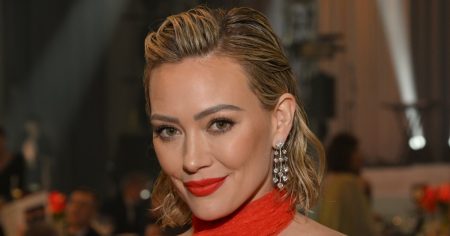Makeup brand Youthforia recently faced backlash for releasing a new dark foundation shade called Deep Neutral (660). This shade was introduced after fans complained about the lack of diverse tone options, with Deep Neutral With Cool Undertones (495) being the deepest hue available. Influencers like Golloria George expressed outrage over the product on social media, with George even demonstrating that the foundation resembled black paint when applied to her skin. She called the tint “Tar in a bottle” and criticized the brand for not creating a darker shade of brown instead.
George also called for the product to be removed from the shelves, questioning who the foundation was actually designed for. Another influencer, Awuoi Matiop, also reviewed the Youthforia foundation, labeling it as “a crime.” Matiop, who is Sudanese, pointed out that the shade was too dark for her and emphasized that if the brand couldn’t find someone to match the shade, then it was not a suitable foundation or skin tint for darker skin tones.
Fans supporting Matiop’s views expressed their frustration with the lack of understanding around pigment in the beauty industry. Many commented on the post, questioning why companies are still struggling to create inclusive shades and apologizing for the situation. Some pointed out the lack of warmth in the foundation and the need for better representation of darker skin tones in makeup brands. Youthforia has not yet responded to requests for comment on the controversy surrounding their new foundation shade.
The criticism towards Youthforia’s Deep Neutral (660) foundation reflects a broader issue in the beauty industry regarding inclusivity and diversity. Many brands have been called out in the past for not catering to a wide range of skin tones, leading to limited options for people of color. The backlash from influencers and fans highlights the importance of creating products that are truly inclusive and representative of all skin colors.
The call for better representation in makeup brands extends beyond just creating darker shades, but also ensuring that undertones and nuances are taken into account. It is not enough to simply have a range of shades if they do not accurately match the diversity of skin tones in the population. As consumers become more vocal about the need for inclusivity, brands will hopefully be pushed to do better and create products that cater to everyone, regardless of their skin color.
Moving forward, it is crucial for brands like Youthforia to listen to the feedback from influencers and consumers and make the necessary changes to create more inclusive makeup products. By involving a diverse range of individuals in the product development process and actively seeking feedback, brands can ensure that their offerings cater to a wider audience. Ultimately, the beauty industry needs to prioritize inclusivity and diversity to truly reflect the diverse range of skin tones and undertones in the population.













